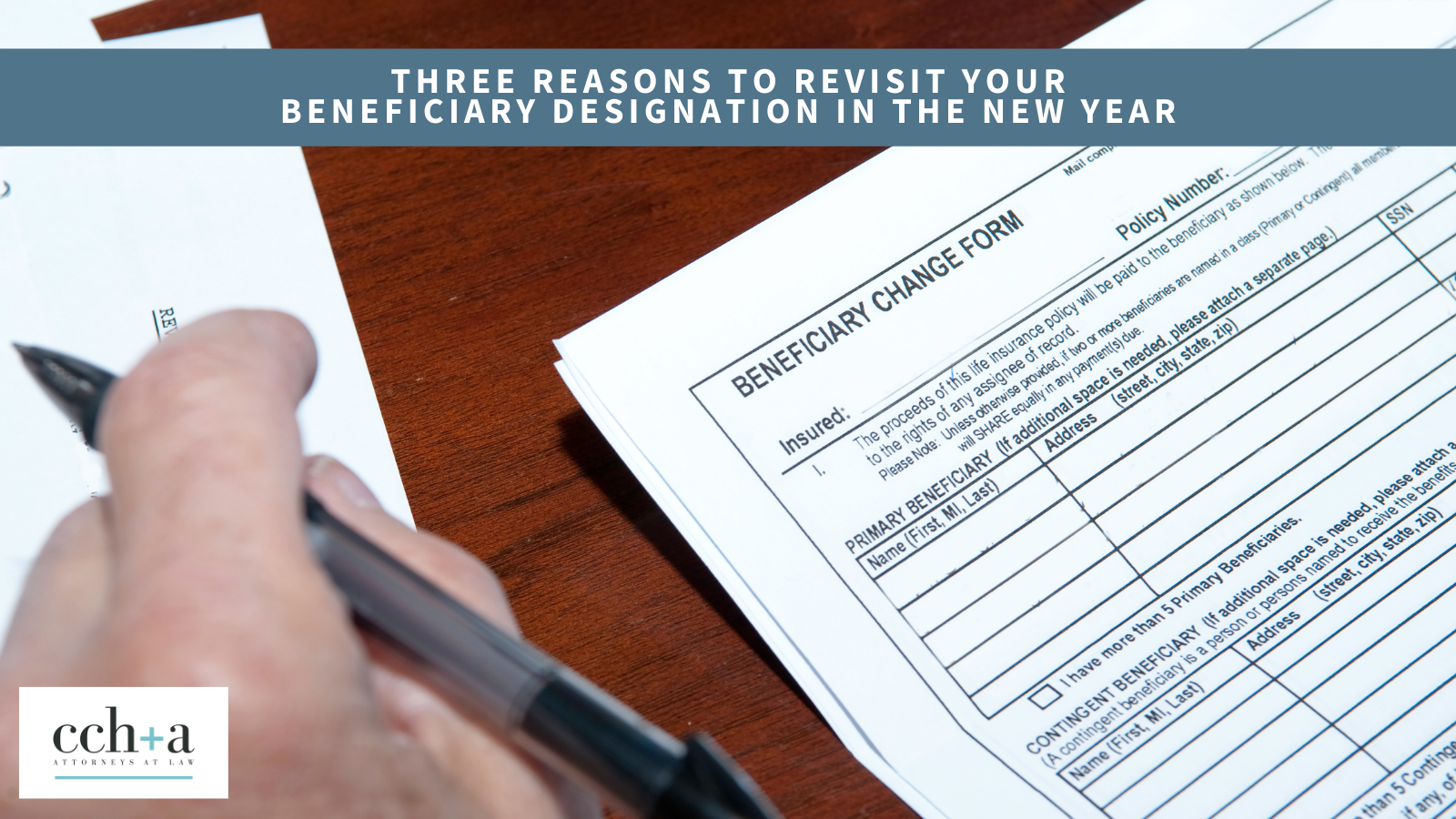Three Reasons to Revisit Your Beneficiary Designation in the New Year

Author: Sarah J. Randall
POST DATE: 1.26.21

Let’s be honest, when is the last time you even considered revisiting your beneficiaries designation? There’s no better time than the new year to ensure this important estate planning effort is updated, as it is so often a time associated with life changes such as marriages, divorces, births, deaths and other major life events — events that can and should influence your designation. Often, overlooking designations in cases like these can be one of the most common and potentially costly retirement and estate planning errors.
CCHA is here to share three reasons why the new year is the best time to revisit your beneficiary designations.

Marriage or Divorce
If you’ve recently been married or divorced, it’s important that your estate plan reflects your new status.
In terms of divorce, the divorce decree does not automatically change the designations of things like life insurance, retirement assets or bank accounts. Other accounts that may have beneficiary designations include health savings accounts, brokerage accounts and bank accounts. It is your individual responsibility to change your beneficiary designations on these accounts, as it is highly likely that while married, your spouse was selected as a beneficiary.
The same can be said for a new marriage. One does not automatically become a beneficiary, even through marriage, thus it is an important step to get your new spouse associated with your accounts.
Birth of a child or grandchild
Each time your family grows, consider including the addition into your estate plan. This can be done individually within a policy or account, or you might consider creating a trust. You should also revisit primary and secondary IRA beneficiary designations when a child becomes a legal adult. If you wish for multiple children to share funds from an IRA, that should also be made clear in your designations.
Death of an existing beneficiary
There are instances when someone may outlive their beneficiary, whether a spouse or child. If a deceased person is named as a beneficiary in your life insurance policy, for example, this could create complications and might require a great deal of time and effort in getting things corrected. Additionally, you may have a secondary beneficiary designation, who receives benefits in the event your primary beneficiary is deceased. If a secondary beneficiary is not identified, benefits may go to your estate.
Contact the CCHA Estate Planning Practice Group with questions regarding any of these issues or if you desire assistance with your estate planning efforts. Our attorneys have assisted many families in transitioning their estates to family members in an efficient and tax-effective manner.